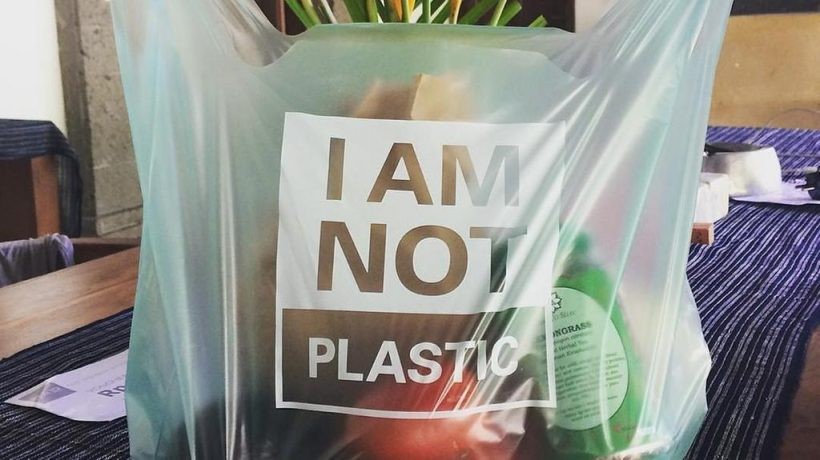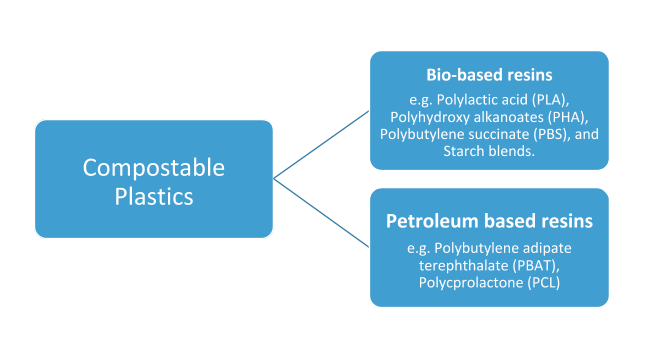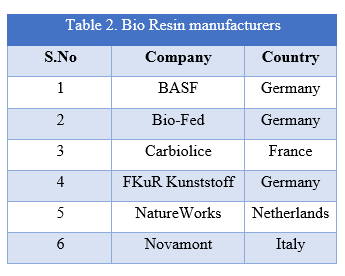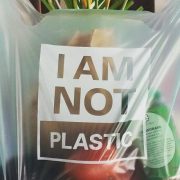
Green Products: How to set up Compostable Plastic bags business?
Compostable plastic bags are plastic bags that decompose into natural components such as carbon, water and biomass upon their contact with soil. As per DS6400, the most widely recognised international standard for compostable plastics, such plastics should completely disintegrate into natural components within 180 days in composting environment.
India generates huge amount of plastic waste (nearly 15,000 tonnes per day). It is estimated that only around 60 per cent of this waste is recycled and remaining gets dumped in the landfills and other places. Prominent among non-recyclable plastics are poly bags made from Polyethylene (PE), which can take up to 100 years to disintegrate.
Plastic bags have been completely banned in Maharashtra[1] (except for milk packets and some specific applications). Further, 17 States and Union Territories in the country have imposed partial ban on these bags with restriction on the thickness of the bags to minimum 50 microns. Increasing awareness about environmentally sustainable products along with restrictions on the usage of plastic bags have improved the prospects of compostable bags.
What are compostable Plastics?
Compostable plastics can be made out of bio based or petroleum based compounds (Resins) as shown below.
Figure1: Types of compostable plastics

Currently, the market for compostable resins is small, at around 1 million tonnes[2] (less than 0.5% of the world’s annual plastic consumption of 320 million tonnes). These resins are patented by large multinationals such as BASF, NOVAMONT and have to be purchased from them or their dealers, thus resulting in a higher price and limited availability. However, their consumption is predicted to grow at a CAGR of 20% over the next five years[3], and with the rise in demand, the availability of such plastics is likely to increase and their prices would become competitive.
How do compostable bags compare with conventional bags?
Compostable resins’ tensile strength, printability and weight bearing capacities are similar to that of conventional polymers such as Polyethylene (PE). In fact, in some specific applications, compostable resin may offer higher density and tensile strength as compared to PE, thus resulting in requirement of less tonnage of the resin vis-à-vis PE.
However, currently, the compostable plastic resin is 2-3 times costlier than the conventional resins. Further, the costs of processing these resins into products such as bags are also higher due to smaller size of the processing capacities. As a result, these bags are 3 times as costly as conventional bags. For example, a medium size compostable garbage bags is currently priced at Rs. 220 (for a pack of 30 bags) as compared to a price of Rs. 70-80 for similar conventional bags.
What are the international and domestic standards for compostable Plastics?
There are a number of standards for compostable plastics including ASM D6400 (USA) and EN 13432 (Europe) and ISO 17088.
An Indian manufacturer of compostable plastic bags has to obtain a certification from Central Pollution Control Board (CPCB) for selling compostable bags and related products. The certification process requires the product to be tested in a government authorised lab to check its compliance to ISO 17088.

Is manufacturing compostable bags complex?
No, the manufacturing is very simple and is a two-step process; first the resin is processed into a film through a blown film manufacturing machine, the film is then cut, printed and sliced as per the bag sizes. Currently most Indian manufacturers use conventional LDPE blown film machinery for sheet extrusion. The resin is either directly imported from the manufacturers (list of bioplastic resin manufacturers is available in Table.2), or their dealers.

Is there a market for compostable bags?
The demand for compostable bags is rising driven by growing concern about the environment and changing regulatory landscape. The waste management regulations in India are getting more stringent about handling and disposal of all types of waste including plastic. Therefore, specific segment of the market such as trash bags, bags for nurseries are witnessing a lot of interest from supermarkets, retail chains etc.
Given the demand, a number of new manufacturers have entered the market in past two years. The number of CBCB registered manufacturers of compostable bags has increased to 12 from just 2/3 a couple of years back ( a list of CPCB approved vendors is available here ).
The usage of other biodegradable/environmentally sustainable products is also increasing. Recently McDonald’s India has proposed to replace its plastic cutlery with a combination of wooden and biodegradable plastic cutlery ( available in this link: McDonald’s India kicks out plastics )
How much capital is required and what will be the profitability?
The capital requirements would depend on the machinery and the scale of operations. For example, a blown film machine of a capacity of 15-20 tonnes a month available for around Rs. 30 lakhs. However a European machinery (smallest capacity of 400 kg per hour) specifically made to handle bioplastics can cost more than Rs. 3 crores.
The minimum capital requirement including working capital is likely to be over Rs. 60 lakhs. The overall profitability and return on investment would be contingent on the manufacturer’s ability to secure regular orders and keep processing costs under control.
What are the key challenges?
- Most states do not have a policy on regulation of usage of compostable plastic bags currently. The guidelines on allowing such bags in retail market would be critical for the growth of the industry.
- The processing machinery is designed for conventional plastic, which can withstand higher temperature as compared to compostable plastics. Therefore getting the right product requires a number of trials.
- The certification process for compostable bags is time consuming and can take up to 6-8 months.
[1] As per the circular, dated 10th July 2018 of Maharashtra Environment department, the compostable plastic bags are allowed for horticulture, agriculture, and handling of solid waste.
[2] Source: Global production of bioplastics, a publication by European bioplastics
[3] Source: European-bioplastics.org
How can we help?
We can help you start a compostable plastic bags manufacturing unit through a number of services including viability assessment, market landscaping and technical consultation
Reach us @
Write to us: bchhatre@finetrain.com, admin@finetrain.com
Call us:+91 800 888 4932







